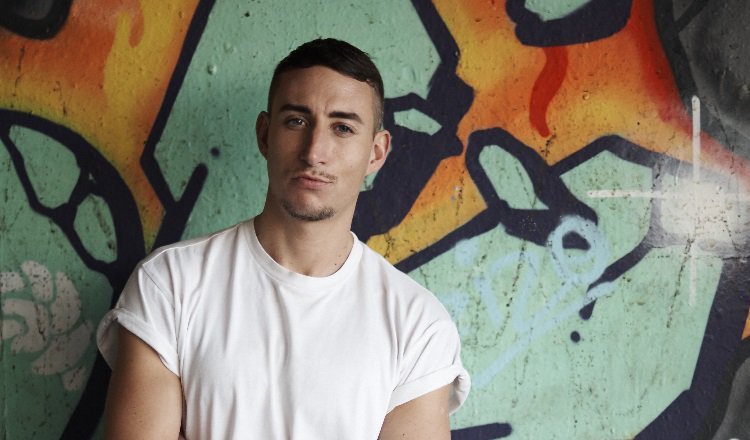‘When it comes to dating, there’s nothing sexy about pretending you’re straight-acting’
By Will Stroude

I was one of those kids that everybody knew was gay, even before I did. I wore pink t-shirts, I played with dolls, and I’d wear my hooded towel pretending I was Rapunzel. I can still remember the pangs when the neighboring kids would come over to play, and mock my Barbie Dream House. Erm, I don’t see any of y’all in a three-story detached country manor.
A few years ago, Russell Tovey caused a stir when he expressed gratitude that his parents had brought him up to act more masculine. Sounds like parental repression to me. However subtle, doesn’t change the fact that somebody is implying you should act a certain way to conform to the zeitgeist of more traditional times. It says: ‘We accept you being gay, as long as it’s on our terms/you can pass for straight’.
At six, when I put on a pair of plastic kitten heels, my dad threw them in the bin. (And not ’cause they were a total fashion no-no). Doesn’t sound far off Tovey’s upbringing, does it? Although it’s not something I would thank him for. I would thank my mum, however, for digging them out, despite it going against the grain of social norm, because she knew I liked them.
Strength is often associated with masculinity, but it was quite clear who was being strong in this situation, and who was cowering away from what was right in front of them. Today, I see my father as more masculine than ever; recording anything LGBT+ on iPlayer, advising me how to pack a wig and heels in the same backpack without ruining the weave, and shouting “Good luck!” out of his car window, when I went to dump a boy I was dating.

Where many people go wrong is confusing confident masculinity with toxic masculinity. The first is based on respect and strong values, while the latter is based on one’s ego, insecurities, and immaturity.
What is masculinity, after all? Facial hair? A husky voice? Bitch, please. Masculinity runs far deeper than superficial attributes that are merely beard-deep.
The concept of masculinity, like most labels, is a bit of an outdated construct that makes people feel alienated and bad about themselves when they don’t fit the mold. I personally think it’s far more attractive when somebody accepts, loves and owns who they are, rather than portraying a faux masculinity they’ve adopted to appeal to the masses. The irony is, pretending to be someone you’re not isn’t masculine at all.
In fact, it takes far bigger balls to learn to love your genuine self. Something that actor Vincent D’Onofrio sums up perfectly: “To me the definition of true masculinity – and feminity, too – is being able to lay in your own skin comfortably.” Not to mention that when a man tries too hard to be masculine, it’s like watching a clueless child try and force the square through the circle-shaped hole; it just doesn’t fit.

After years of being repressed, I spent my first years out of the closet unleashing my inner Louie Spence, high-kicking and slut-dropping around the Yumbo Centre. I did it to make people laugh, and that’s how I’d get my validation. But it was also a glitter-covered middle finger to everyone who called me a ‘batty man’ in school.
One day I succumbed to a casual mental breakdown because I realised I’d been playing another kind of character for years. How can you accept yourself when you’re constantly pretending to be someone else? And for a while, I tried to butch myself up like the rest of them, as it doesn’t take long to see the huge amounts of gay men who put ‘masculinity’ on a pedestal.
In fact, in Attitude’s recent Masculinity Survey, 75% of men said they are turned off by femininity. But who decides what is feminine and what isn’t? Both femininity and masculinity aren’t real things. They’re not factual, nor tangible; they’re subjective.
Many would argue, that surely the whole point of being gay is that we’re dating another man? Sure. A sexy ‘straight-acting’ or ‘straight-looking’ guy is the fantasy for many gay men, so it wouldn’t be surprising for one assume all of us are after this kind of guy. But we live in a far more modern world to believe that men who fancy men are solely attracted to one type of male.
Even when I realised that I didn’t need any kind of mask to make people like me, I’d constantly put myself down before giving myself half a chance; I’m not his type. He wouldn’t fancy me. I’m not manly enough for him. We know that little voice which stands in the way of happiness like a brick wall, all too well.

But the reality is that masculinity isn’t as cut and dry as either you ‘are’, or you ‘aren’t’. To me, it makes sense to see masculinity like sexuality: as a spectrum. All of us have elements of masculinity and femininity to them – none of which should be repressed, by parents, neighbouring kids, that guy on Grindr, or, most importantly ourselves.
It was only when I embraced all aspects of myself that I began to attract more men. Guys would tell me I was adorable, lads I’d admired from afar landed in my DMs, and men who had rejected me in the past boomeranged, (although I believe it was Marilyn Monroe who said, ‘if you can’t handle me at my Adam Lambert, then you certainly don’t deserve me at my Jason Statham’).
Why? Well, because ultimately, the sexiest thing you can be… is real.
Anthony Gilét is a London-based writer, blogger and YouTuber – follow him on Twitter and Instagram.
To read more from the Single & Fabulous? series click here.
Attitude’s Masculinity Issue is out now. Buy in print, subscribe or download.

